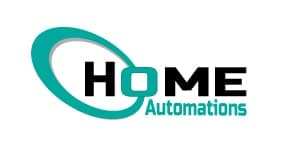Tight keep on. You are on the fast track of a new modern age. To create an awe-inspiring experience, 5G, IoT, AI and Blockchain are all working together. They are fast becoming ubiquitous and the standard once revolutionary concepts and theories, and as they take root of every industry, we are likely to experience a revolutionized life.

Automotive Industry & IoT
90 percent of all new vehicles will be connected via IoT by 2040. Globenewswire.com claims that the global automotive IoT industry is expected to hit $541.73 billion by 2025. Increasing government policies, the need to build smart cities and smart traffic management systems, and the minimization of greenhouse gas emissions can be attributed to the exponential growth of IoT in the automotive industry.
As a whole, IoT has a lot to contribute to the industry. It’s enhancing connectivity, which in turn is converting cars into smart devices and paving the road for autonomous vehicles. At the moment, the main areas that IoT is driving change in the automotive sector include V2X and in-vehicle communication.
Vehicle-to-Everything (V2X) Communication
This involves correspondence from vehicle-to-vehicle (V2V) and vehicle-to-infrastructure (V2I). The ability to collect accurate and full data about the surrounding world in real time is the main feature of connected vehicles. And that means depending on modern sensor-based technologies, high-resolution sensors, radar, aHow Are Cars Being Revolutionized By IOT And Blockchain?nd so on. Objects need to be detected within a centimeter and up to 120 meters distant.
The sensor-generated data can help drivers receive route information, estimated travel times, incident reports, etc. So alerts about road conditions or driving hazards can help map out the most efficient route.
These Smart Home Items Will Save You from Panicking
In-Vehicle Communication
Equally relevant is internal sensor equipment. A whole range of parameters, including fuel level, rpm, tire pressure, in-cabin humidity, brake efficiency, temperature, and even driver behavior, can be calculated by IoT-enabled sensors. For predictive repair, this is opening doors. A visit to a mechanic may be arranged until a problem occurs by tracking vehicle output.
Blockchain in the Automotive Industry
The lack of security in the IoT sphere is a major concern. As Yotam Gutman mentioned in the RFID Journal, it’s a Doomsday Scenario waiting to happen. This is where Blockchain technologies can be helpful.
Research shows that bringing Blockchain can significantly enhance and secure data exchange between connected devices and IoT platforms. According to a report by Frost and Sullivan, 10% to 15% of connected vehicle transactions will likely be on Blockchain by 2025.
The processes used by Blockchain to archive and store information help protect it from leakage and manipulations. Via cryptographic hashes and timestamps, data is connected to each other, rendering it virtually impossible to tamper with. In addition, in countless individual nodes in the Blockchain, automatic backup files are stored.
These features are expected to boost the acceptance, incorporation, and growth of Blockchain technologies in the automotive market. For example, Volkswagen wants to prevent odometer fraud, and Ford wants to track how raw materials are acquired. Blockchain-backed developments have great potential in financing, mobility solutions, smart contracts, supply chain management, and much more.
The Problem
Although Blockchain innovations are starting to set foot in the auto industry, the future is still shrouded by a great deal of uncertainty. Of all the other new technologies, the deployment of Blockchain may not be as easy. Although projections and estimates are strong, the adoption rates differ from country to country. Owing to risk control and regulatory conditions, it has been slower in some regions.
What to Expect
The adoption and combination of IoT and Blockchain technology will help to address the challenges faced independently by each of them. It would be nothing short of groundbreaking to formulate a method where the entire automotive industry could operate with minimal human control.
Immutable DLTs, for example, could help address safety and security issues, while IoT could promote the processing and universal implementation of data. Blending their features could blur the line between them and build a whole new definition of an automobile. And while this is merely a concept in the childhood stages, it is important to investigate and assess viable use cases. So yeah, there’s the chance out there.
Home Automation >> Blog >> How Are Cars Being Revolutionized By IOT And Blockchain?